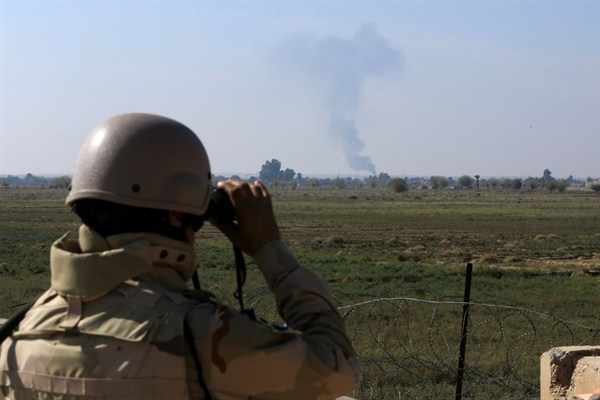During the 2016 U.S. presidential race, then-candidate Donald Trump didn’t talk much about the specifics of foreign and national security policy, with one exception: a pledge to defeat the Islamic State. Once elected, Trump ramped up the anti-ISIS military campaign that President Barack Obama had begun and increased support to local militias in Syria, including many Syrian Kurds, and security forces in Iraq. Eventually, this paid off. Through a grueling campaign led by the militias and the Iraqis, the Islamic State lost most of the territory it controlled in both Iraq and Syria.
A month ago, Trump declared victory. “We have defeated ISIS in Syria, my only reason for being there during the Trump Presidency,” he tweeted, and signaled his intention to withdraw U.S. military forces from Syria. This week, from the World Economic Forum in Davos, Secretary of State Mike Pompeo added to the victory chorus, saying that the United States “defeated the ISIS caliphate in Syria and Iraq alongside more than six dozen nations in the global coalition.”
Many security experts, of course, have pushed back against the Trump administration’s claims, contending that while the Islamic State is down, it is far from defeated. Like many insurgent movements, the Islamic State repeatedly adapts to changing conditions. It began as a dispersed, underground organization relying on terrorism and guerrilla attacks, and then transformed into a quasi-state using more conventional military methods. Now it is returning to its roots. Although it only controls a sliver of territory in Syria, it still has as many as 30,000 armed militants. It is migrating to different parts of the world, fighting government forces from Nigeria to Afghanistan to the Philippines, while its guerrilla tactics and terrorist attacks continue in Iraq.

